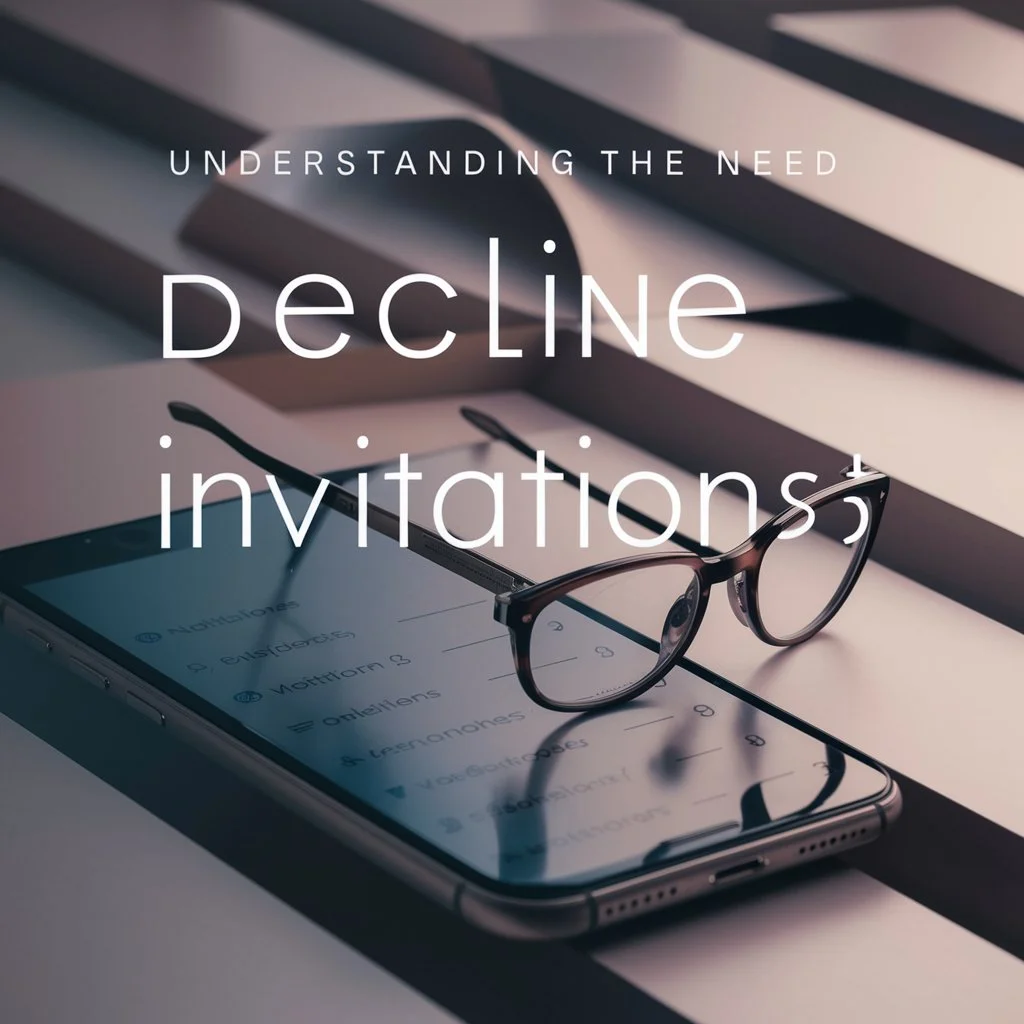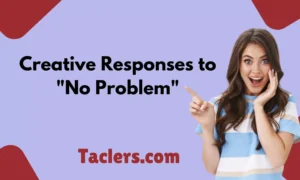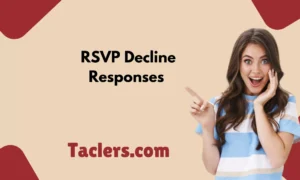In our busy lives, it’s not uncommon to find ourselves needing to decline invitations. Whether you’re an introvert, experiencing burnout, juggling prior commitments, facing unexpected issues, or simply not keen on the event, having a variety of respectful and honest excuses can help you navigate these situations with grace. This guide explores practical and considerate reasons for turning down invitations, offering insights and examples for each scenario.
Understanding the Need to Decline Invitations

Before diving into specific excuses, it’s essential to understand why we might need to decline invitations. Common reasons include:
- Personal well-being: Prioritizing mental and physical health.
- Commitments: Balancing existing obligations and responsibilities.
- Unexpected events: Dealing with unforeseen issues or emergencies.
- Personal preferences: Disinterest or discomfort with certain events or hosts.
By acknowledging these reasons, you can communicate your needs effectively while maintaining healthy relationships.
Excuses for Introverts and the Socially Anxious
Introverts and those who are socially anxious often need to balance social interactions with their need for solitude and relaxation. Here are some thoughtful excuses to help manage these situations:
“I’m feeling overwhelmed and need a night in to recharge my social battery.”
For many introverts, social interactions can be draining. It’s crucial to prioritize your well-being, and a night in can be the perfect way to recharge.
Example :
“Thanks for inviting me! I’m feeling a bit overwhelmed today and need a quiet night to recharge. I hope you have a great time, and let’s catch up soon!”
“I’m starting a new project/book/show, and I’m really excited to dive into it tonight.”
Personal projects or hobbies can be significant sources of joy and relaxation. Prioritizing them is perfectly reasonable.
Example :
“I’m really looking forward to starting a new book tonight, so I’ll have to miss out this time. Let’s plan something soon—I’d love to hear all about your event!”
“My pet isn’t feeling well, and I want to stay home to keep an eye on them.”
Pets are family, and their health often requires immediate attention. Use this as a valid reason for staying in.
Example :
“My pet isn’t feeling well, and I need to stay home to look after them. I’m sorry to miss your event, but I hope you understand. Let’s find another time to get together!”
“I have some errands to run that I’ve been putting off, and they really need to get done.”
Sometimes, everyday tasks pile up, and addressing them becomes essential.
Example :
“I’ve got a few errands that have been lingering for too long, and I need to tackle them tonight. I’m disappointed to miss out, but let’s plan for another time!”
“Thanks for the invite, but large gatherings tend to drain my energy. Maybe next time!”
Acknowledging your energy levels and preferences can help set boundaries without offending anyone.
Example :
“Thank you so much for inviting me! Large gatherings can be a bit draining for me, so I’ll have to pass this time. I hope it’s a fantastic event, and I’d love to join you next time!”
Managing Burnout
Burnout can significantly impact your ability to engage in social activities. Here’s how to navigate invitations while prioritizing self-care:
“I’m feeling pretty worn out and need to prioritize some serious rest.”
When burnout hits, rest is crucial. Prioritizing your health over social events is both necessary and responsible.
Example :
“I’m feeling quite worn out and need to prioritize some rest. I’m really sorry to miss your event, but I hope you understand. Let’s catch up once I’ve recharged!”
“I’m really behind on sleep and need to catch up this weekend.”
Sleep is essential for recovery and overall health. Use this as a valid excuse for declining invitations.
Example :
“I’m behind on sleep and need to catch up this weekend. I’m disappointed to miss out, but I hope you have a great time. Let’s arrange another get-together soon!”
“I haven’t had a moment to myself all week, and I’m desperate for some downtime.”
Downtime is essential for mental health. It’s important to communicate your need for personal space clearly.
Example :
“I haven’t had any downtime this week and really need a moment to myself. I’m sorry to miss your event, but I hope you understand. Let’s meet up another time when I’m feeling more refreshed!”
“I’ve been feeling under the weather, and I’m worried I might be contagious.”
Health concerns are a valid reason for declining an invitation, especially if you might be contagious.
Example :
“I’m not feeling well and might be contagious, so I need to stay home. I’m really sorry to miss your event, but I hope you have a fantastic time. Let’s catch up when I’m back to feeling better!”
“My brain needs a break. I’m going to have a quiet night in!”
Mental exhaustion requires a break, just like physical fatigue. Communicate your need for a quiet night with honesty.
Example :
“I’m feeling mentally exhausted and need a quiet night in to recharge. I’m sorry to miss your event, but I hope you have a wonderful time. Let’s catch up soon!”
Managing Prior Commitments
Prior commitments often make it difficult to attend additional events. Here’s how to navigate these situations:
“I already committed to helping my [family member/friend] with something that night.”
Honoring prior commitments is crucial. Use this as a legitimate reason for declining new invitations.
Example :
“I’ve already committed to helping a family member that night. I’m sorry to miss out, but I hope you have a great time. Let’s find another time to get together!”
“I have a work/school thing I can’t reschedule that came up unexpectedly.”
Unexpected work or school responsibilities can interfere with social plans. Be honest and straightforward about this.
Example :
“A work/school obligation unexpectedly came up, and I can’t reschedule it. I’m sorry to miss your event, but I hope you have a fantastic time. Let’s plan something soon!”
“I have a non-refundable appointment that evening that I totally forgot about.”
Appointments can be difficult to reschedule, especially if they involve financial commitments. Use this as a clear reason for declining.
Example :
“I have a non-refundable appointment that I completely forgot about. I’m really sorry to miss your event. I hope it’s a great time, and I’d love to join you next time!”
“I’m expecting a delivery that night, and I need to be home.”
Sometimes, you need to be present for home deliveries. Communicate this clearly and professionally.
Example :
“I’m expecting a delivery that night and need to be home. I’m disappointed to miss out, but I hope you understand. Let’s plan another time to catch up!”
“I already have plans to catch up with an old friend who’s in town.”
Prior plans, especially with long-standing friends, can take precedence. Express your regret while affirming your prior commitment.
Example :
“I’ve already made plans to catch up with an old friend who’s in town. I’m sorry to miss your event, but I hope you have a wonderful time. Let’s arrange another get-together soon!”
Handling Unexpected Issues
Unexpected issues can arise at any time, making it necessary to cancel plans. Here’s how to manage these situations:
“My car wouldn’t start, and I’m waiting on a tow/family member to help.”
Car troubles can be a significant inconvenience. Be honest about the situation and the steps you’re taking to resolve it.
Example :
“My car wouldn’t start, and I’m waiting on a tow. I’m really sorry to miss your event, but I hope you have a great time. Let’s catch up soon once this is sorted out!”
“A pipe burst/something broke at home, and I need to deal with it.”
Home repairs often require immediate attention. Communicate your situation clearly to avoid misunderstandings.
Example :
“A pipe burst at home, and I need to handle the repair. I’m sorry to miss your event, but I hope you have a fantastic time. Let’s find another time to get together!”
“A friend of mine just reached out, and they’re going through a tough time, I need to be there for them.”
Supporting friends during tough times is important. Use this as a genuine reason for needing to decline.
Example :
“A friend reached out and is going through a tough time, so I need to be there for them. I’m sorry to miss your event, but I hope you understand. Let’s plan another time to meet up!”
“I forgot about my pet’s vet appointment, and I have to take them.”
Pet care often takes precedence. Clearly communicate your responsibility towards your pet.
Example :
“I forgot about my pet’s vet appointment, and I need to take them. I’m really sorry to miss your event. I hope you have a wonderful time, and let’s catch up soon!”
“Your well-being is a priority; let’s plan for another time.”
If you have concerns about the host’s well-being, express your support and suggest rescheduling.
Example :
“Your well-being is important to me, and I’d prefer to plan for another time. I hope you understand, and I look forward to catching up soon!”
Discomfort with the Host or Event
Sometimes, personal preferences or discomfort with the event can be valid reasons for declining. Here’s how to handle these situations with tact:
“Respect your feelings, let’s find something else we both enjoy.”
If you’re uncomfortable with the event but still value the relationship, suggest an alternative.
Example :
“I appreciate the invitation, but I’m not comfortable with this event. Let’s find something else we both enjoy. I’d love to spend time together soon!”
“I have a really early start tomorrow, and I won’t be able to stay out late.”
Early starts can affect your ability to attend events. Communicate this clearly and respectfully.
Example :
“I have an early start tomorrow and won’t be able to stay out late. I’m sorry to miss your event, but I hope you have a fantastic time. Let’s plan something for another day!”
“I have a headache/migraine coming on, and I don’t think I’ll be good company.”
Health issues can impact your ability to socialize. Be honest about your condition and the need for rest.
Example :
“I’m starting to get a headache and don’t think I’ll be good company. I’m sorry to miss out, but I hope you have a great time. Let’s catch up soon when I’m feeling better!”
“I’m so sorry, that sounds fun, but it’s just not my kind of thing.”
Disinterest in the event doesn’t need to be a negative reflection on the host. Communicate this politely.
Example :
“I’m sorry, but that event isn’t quite my thing. I hope it’s a fantastic time, and I’d love to find another activity we can both enjoy together!”
“I have a lot on my mind, and I need some quiet time to sort things out.”
Sometimes, personal reflection is necessary. Use this as a reason for needing some space.
Example :
“I’ve got a lot on my mind and need some quiet time to sort things out. I’m sorry to miss your event, but I hope you understand. Let’s plan something when I’m feeling more settled!”
Conclusion
Navigating the process of declining invitations requires a blend of honesty, respect, and consideration.
Whether you’re managing personal needs, prior commitments, unexpected issues, or simply prefer not to attend, using thoughtful excuses helps maintain relationships while honoring your own boundaries.

Nicholas Clark is a dynamic writer with a knack for capturing the essence of human reactions. With a background in psychology, he delves deep into the science behind every smile, frown, and gasp. His insightful articles on Taclers.com will leave you pondering the fascinating world of human emotions.










